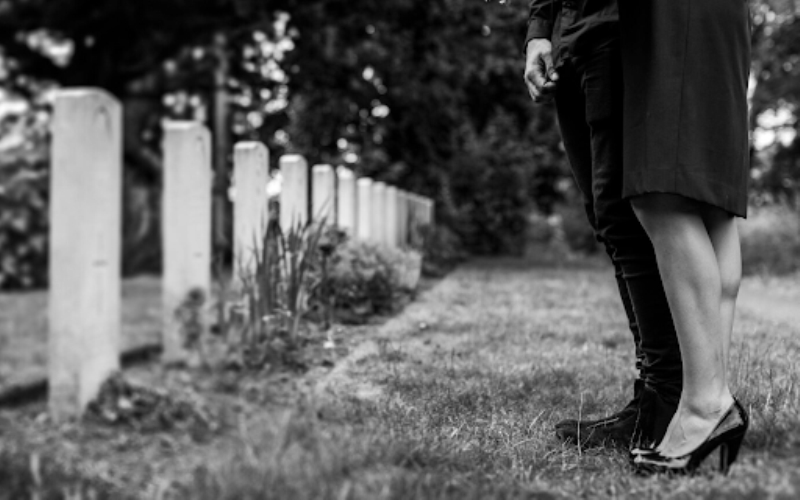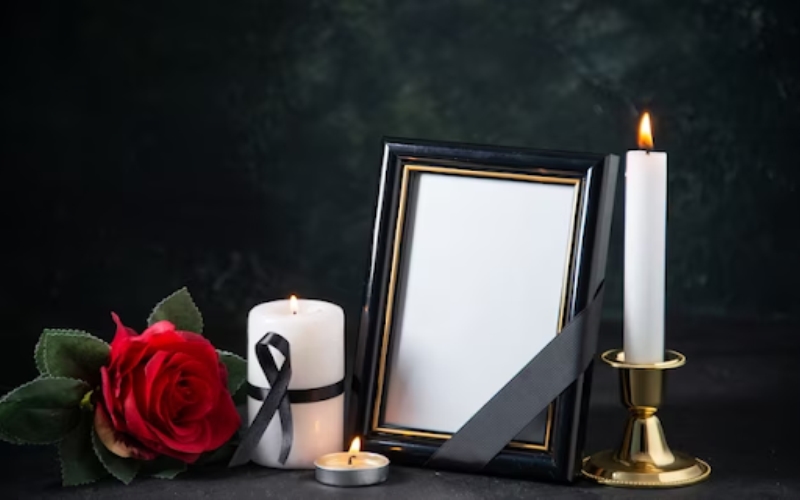Buddhism was founded by Siddhartha Gautama (Buddha) in the 5th Century B.C. India, emphasizes the path to enlightenment or ‘Nirvana’ through meditation, ethical living, and wisdom. It explores concepts like Karma, rebirth, and the Four Noble Truths, with diverse traditions across Asia.
Importance of Funeral Services in Buddhism
Funeral services in Buddhism are essential to honour the departed, provide solace to loved ones, and contemplate impermanence. TLC Buddhist funeral services serve as a ritual to guide the deceased’s consciousness towards a favourable rebirth, highlighting Buddhism’s belief in reincarnation.
Concept of Death in Buddhism
In Buddhism, death is perceived as a natural part of life’s cycle. It’s seen as the end of the physical self, but not the spiritual self, which may be reborn. The focus is on understanding impermanence, reducing attachment, and achieving Nirvana to escape the cycle of rebirth.
Buddhist Funeral Traditions
Symbolism in Buddhist funeral services typically entails elements representing impermanence and reincarnation. The rituals often incorporate candles, incense, and flowers symbolizing enlightenment, purification, and the fleeting nature of life, respectively. Chanting scriptures underscores karma and the cycle of birth, death, and rebirth.
The Role of Monks in Funeral Services
Monks play a significant role in funeral services, particularly in Buddhist traditions. They lead ceremonies, offering spiritual support and guidance. They chant sutras and mantras to ensure the peaceful transition of the deceased’s soul, hence providing comfort to grieving families.
Variations of Buddhist Funeral Services
Theravada Buddhist Services
Theravada Buddhist services involve meditation, prayer, offerings, and sermons from resident monks. Practices such as circumambulation, reverence to Buddha and chanting scriptures are essential. Occurring at temples, services unify Theravada followers in shared understanding and spiritual growth.
Tibetan Buddhist Services
Tibetan Buddhist Services are spiritual gatherings centred around meditation, teachings, and rituals. These services feature the chanting of mantras, prayer wheel spinning, and ritualistic dance. The purpose is to cultivate compassion, wisdom, and inner peace.
Jodo Shinshu Buddhist Services
Jodo Shinshu Buddhist Services involve chanting sutras, expressing gratitude, and the recitation of Nembutsu. These services, often led by an ordained minister, aim to cultivate mindfulness, compassion, and understanding, reflecting true Pure Land Buddhism principles.
Compassionate Guidance During Buddhist Funeral Services
Role of Compassion in Buddhist Funerals
Compassion is a significant pillar in Buddhist funerals, reflecting the belief in the interconnectedness of all beings. It fuels the ceremonial rites, praying for the deceased’s peaceful transition, and comforting the grieving. This embodies Buddhism’s emphasis on empathy, kindness, and understanding towards others.
How compassionate guidance aids the grieving process
Compassionate guidance is essential in the grieving process. It provides emotional support, allows space for expressing feelings, and promotes understanding of grief. This guidance aids in navigating through the pain and fosters the healing journey, making the grief manageable.
Buddhist funeral services FAQs

What is done at a Buddhist funeral?
At a Buddhist funeral, the body is either cremated or buried according to local customs. Prayers and rituals are conducted, led by monks. Notably, the mourners chant sutras, offer fruits and gifts to the deceased, and perform merit-making activities.
What is the appropriate gift for a Buddhist funeral?
The appropriate gift for a Buddhist funeral is usually a donation to the family or a Buddhist charity in the name of the deceased. Other suitable offerings include fresh fruits, flowers, or incense, symbolizing impermanence and the cycle of life and death.
Do Buddhist funerals have flowers?
Yes, Buddhist funerals often incorporate flowers as symbolic offerings. Such flowers represent the impermanence of life, reflecting a core Buddhist belief. However, the choice and presentation of flowers may vary across different Buddhist cultures and traditions.
What do you say to a Buddhist when someone dies?
When addressing a Buddhist after someone’s death, it’s appropriate to say, “May you find comfort in the impermanence of all things and the peace of Nirvana.” Buddhists believe death is a natural cycle of rebirth, which offers hope.

